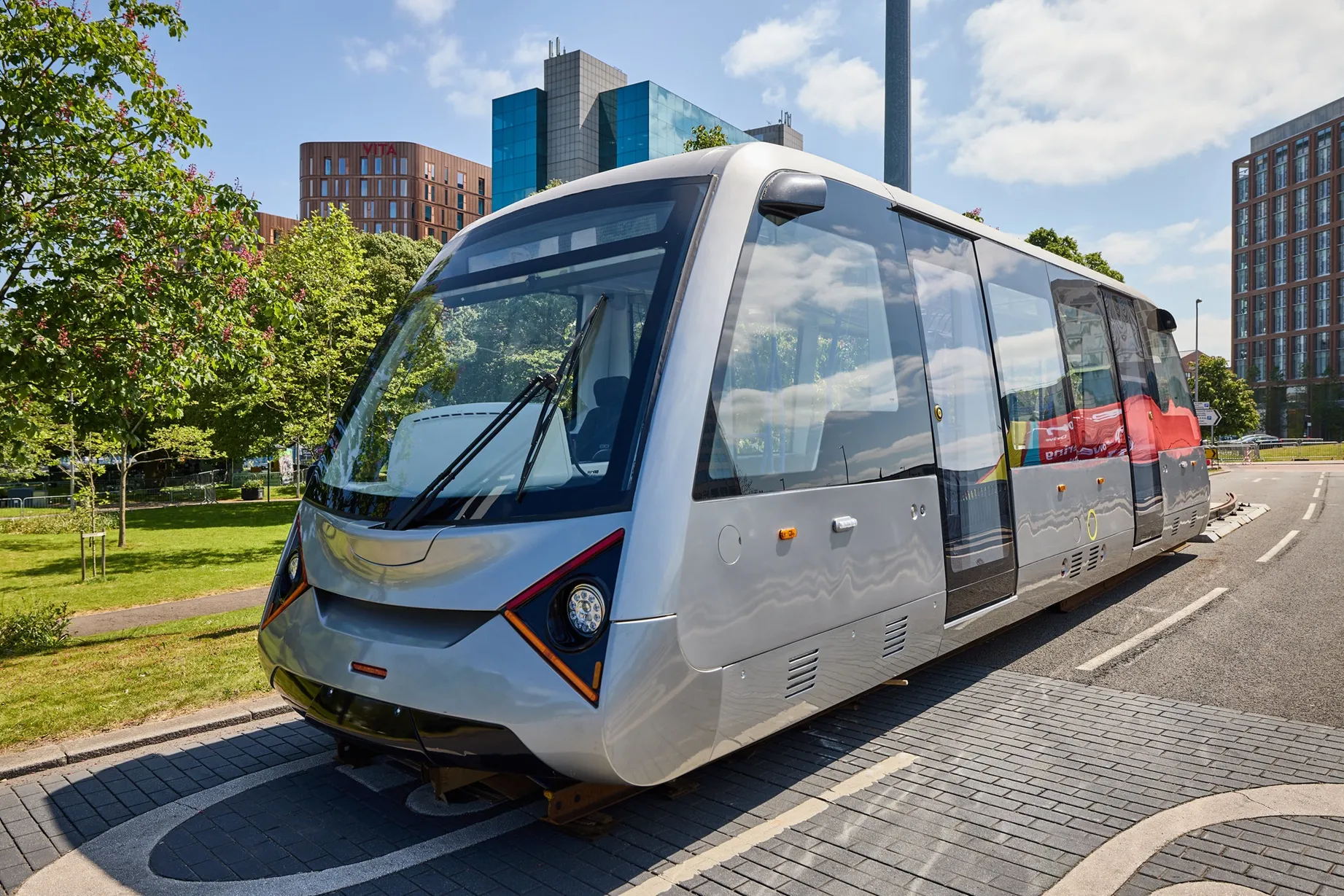
A new light rail system is being trialled in the centre of Coventry, a city in the English Midlands.
The Coventry Very Light Rail (CVLR) project is being led by Coventry City Council and Coventry University’s Research Centre for Future Transport and Cities.
The aim is to create a rail-based, hop-on/hop-off mass transit system that can be built at less than half the cost and in half the time of conventional tram systems, while providing the same benefits.
A 220m single-track 'demonstrator' has been constructed in the city centre, the first time the new track has been installed in a live urban setting.
The vehicles are battery-powered and a key feature of the project is its turning system which enables the track to be installed within tight corners in the existing carriageway and at a shallow depth, to minimise the need to relocate underground cables and pipes.
Funded by the council, as well as the UK Department for Transport via the West Midlands Combined Authority (WMCA), it will form part of a wider city-wide transport network connecting with existing electric buses.
Paul Herriotts, professor of transport design at the Research Centre for Future Transport and Cities, said: “We are a world-renowned centre in the development of human-centred transport, whether that be very light rail or flying taxis."
“This is the first time such a rail system has been developed for a city of Coventry’s size and we’re very proud to be playing our part in its development. We are actively engaged in challenge-led research with and for a number of external partners, which not only benefits them but also helps shape our teaching and helps us prepare our students for the workplace.”
Professor Richard Dashwood, the university's deputy vice chancellor (research), says: “It’s great for the future of transport in the city to see the council engaging with organisations such as Coventry University in such a positive way on this transformational project.”
Councillor Jim O’Boyle, cabinet member for jobs, regeneration and climate change, says: “This is a significant next step in our plans to revolutionise transport, improve air quality, and create jobs. The green economy is growing, and CVLR is at the heart of that right here.”
Richard Parker, mayor of the West Midlands and WMCA chair, said: “Very Light Rail is cutting-edge technology which will make the delivery of rapid public transport quicker and more affordable for towns and cities.







